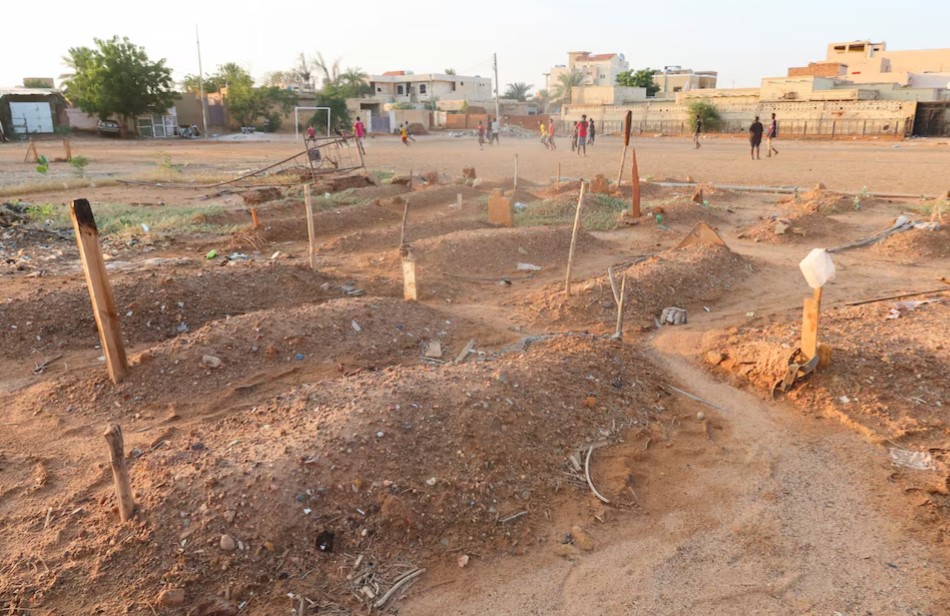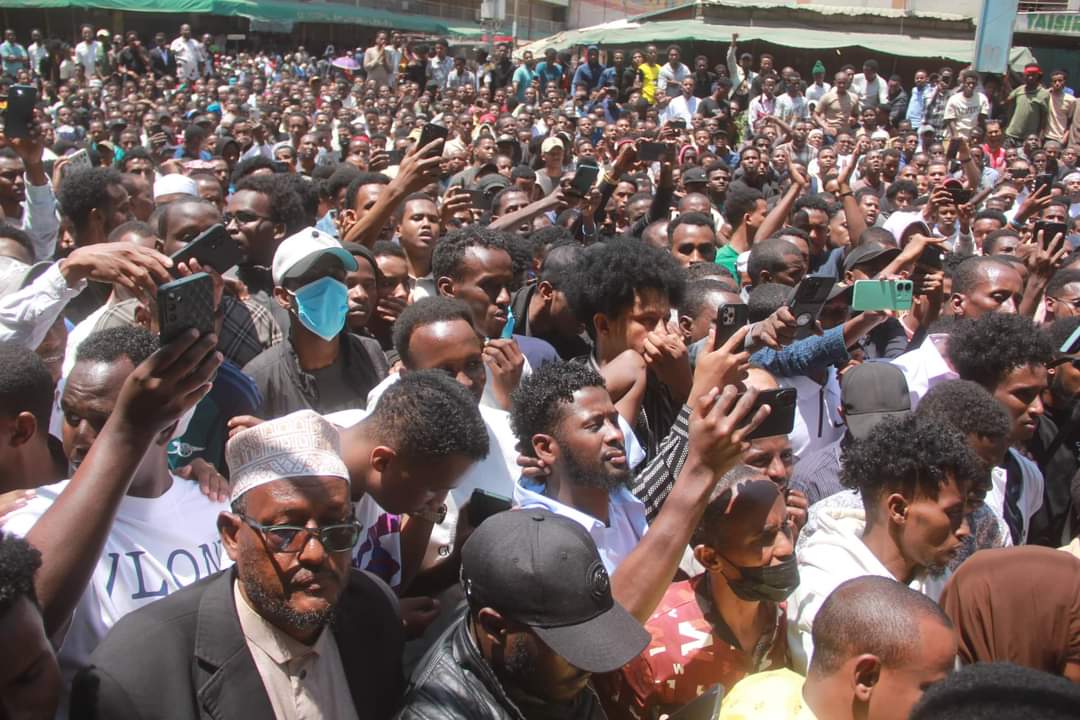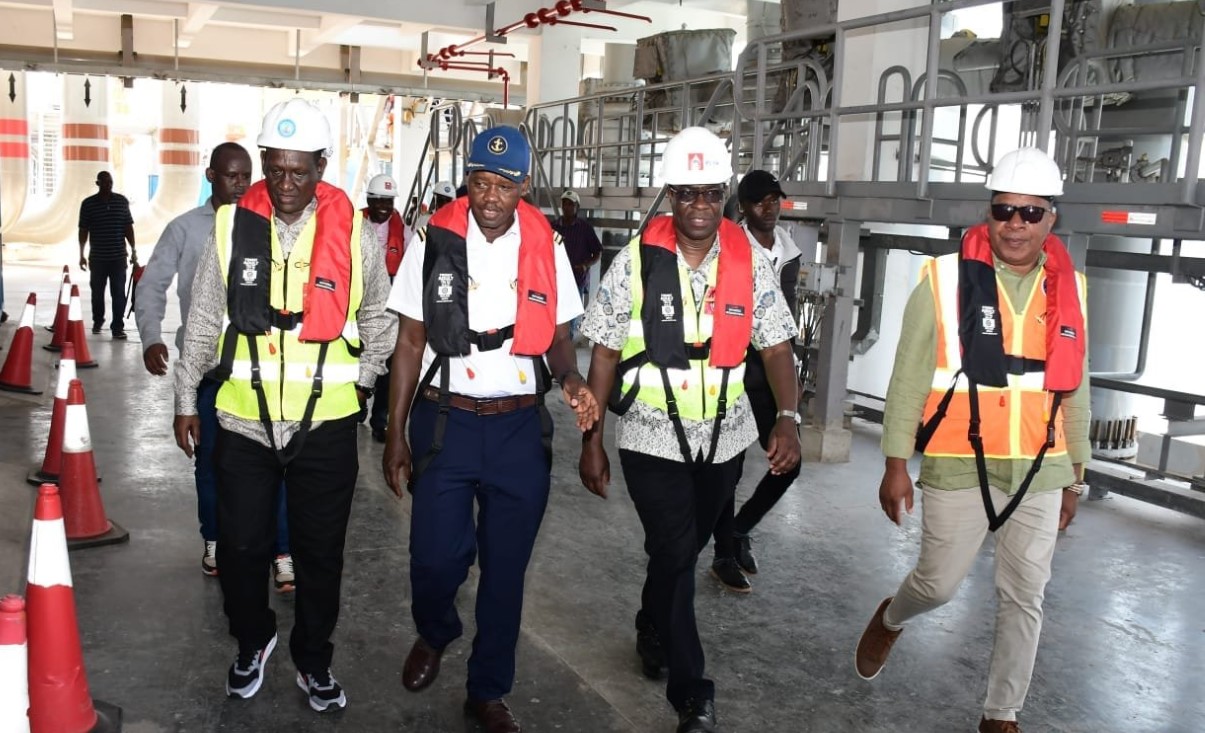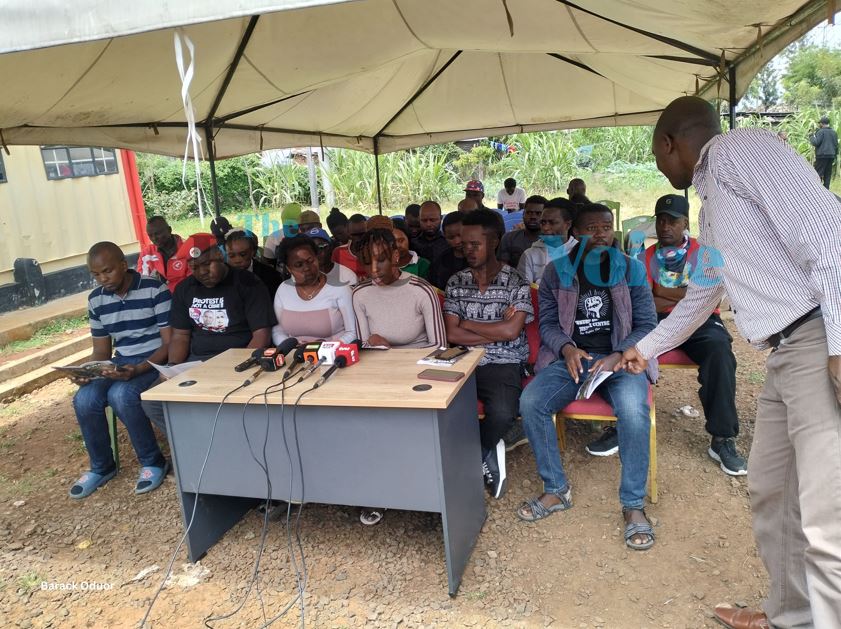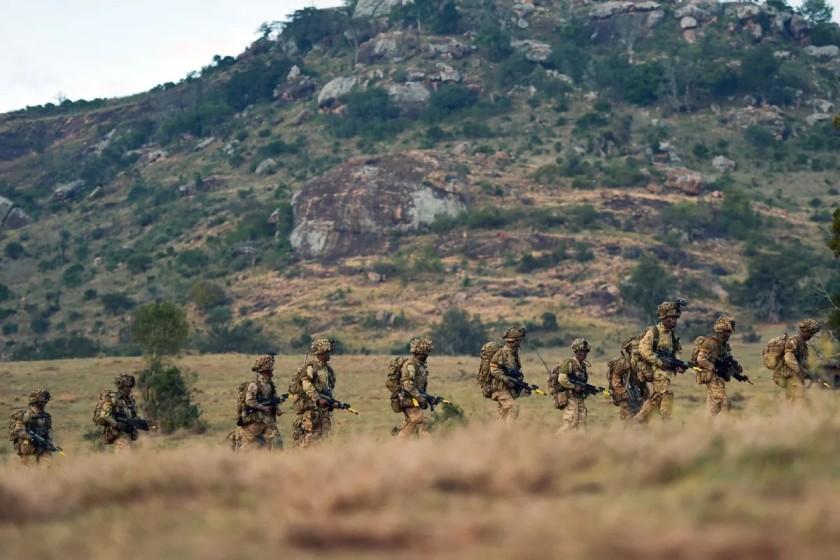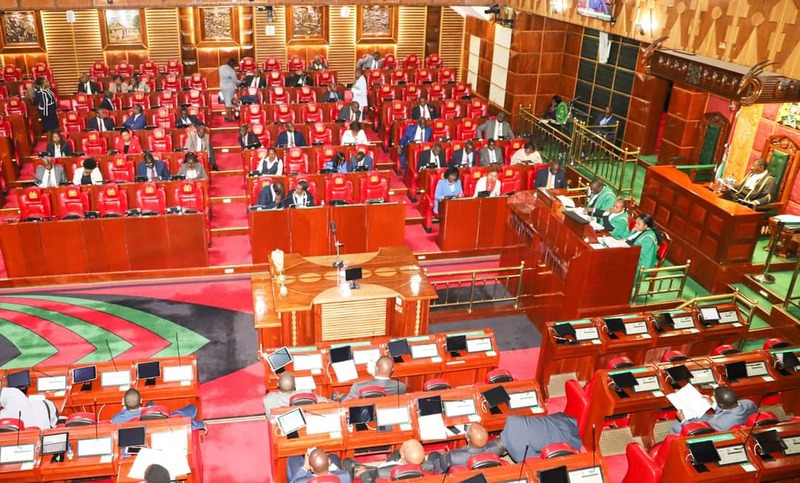Killed by a 'candle': How Tony Blair's army led Kenyan civilian to his death
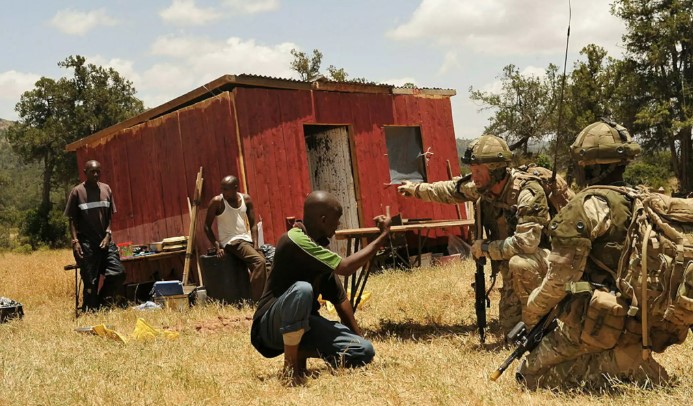
By Phil Miller |
A Kenyan man working for the British military was blown up 17 years ago. The true circumstances of his tragic death can finally be told for the first time.
In March 2007, Tony Blair was preparing to step down as prime minister after a decade in power. But the wars in Iraq and Afghanistan that he had plunged Britain into were far from over.
British soldiers were coming under relentless fire from Basra to Helmand – battles Blair had picked in a doomed bid to impress Washington.
Keep reading
Both campaigns would end in defeat, costing hundreds of British lives. They left behind a bitter legacy of broken veterans and betrayed local allies.
Yet their trail of destruction went much further afield than the official tributes have acknowledged.
With the army besieged from Sangin to the Shatt-al-Arab, Britain’s infantry battle school sought to harden platoon commanders for “high-intensity expeditionary operations”.
Nestled below the Brecon Beacons at Dering Lines, the school’s Welsh weather normally lacked the heat soldiers would endure abroad. Conveniently though, Britain still had access to vast swaths of Kenya.
In this former colony, the UK military had training grounds four times larger than the Salisbury Plain. It was perfect, or so they thought, for conducting the final phase of a tactics course in hot, dry conditions.
A hundred miles north of Nairobi, a white Kenyan coffee magnate let the old colonial power conduct war games at his ranch in Ole Naishu for around a quarter of a million pounds a year.
Local civilians, sometimes dressed as Taliban, were paid considerably less to participate in the exercises.
Among them was 28-year-old Robert Swara Seurei, a labourer with limited education or understanding of English.
Robert was about to become an unwitting casualty of Blair’s wars.
‘Inoculation’
The battle school had an ambitious schedule for its stay at Ole Naishu.
There would be an attack on 12 March; a defensive battle from 12-15 March; withdrawal from a defensive position overnight on 15 March; and another attack on 16 March.
Throughout these manoeuvres, controlled explosions would simulate the noise of artillery and mortar fire “to enhance the realism of training” and produce “battle inoculation”.
After each stage, the ground had to be checked for explosives that had failed to detonate and posed a risk to civilians.
These battle noise simulations (“BATSIMs”) were overseen by a corporal, whose name is still being censored by the Ministry of Defence (MoD) from a trove of documents obtained by Declassified UK.
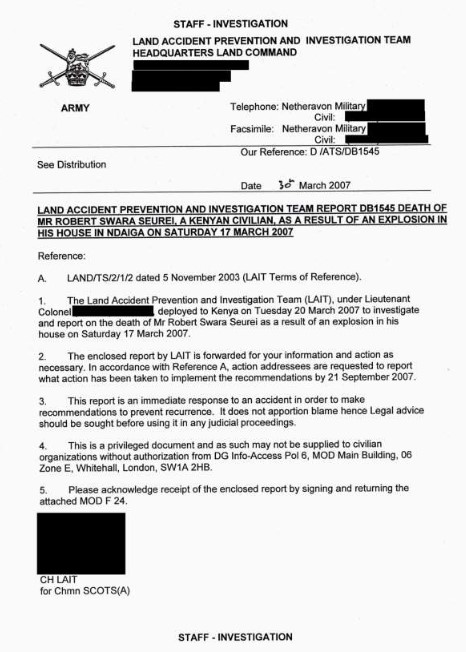
The paperwork, only released after almost a year of freedom of information requests and repeated interventions from Britain’s transparency watchdog, reveals that the corporal was set up to fail.
He was too junior to be in charge of explosives for the exercise, a role that should have been given to a senior NCO or officer.
He lacked the “appropriate maturity and experience” for the task, was “clearly” given “too much responsibility” and was placed under “considerable” time pressure.
The army’s board of inquiry noted: “He did not feel that he could bring this to anyone’s attention” due to his lack of seniority and “merely ‘got on with the job’.”
That job involved attaching sticks of plastic explosives to detonators and ignition safety fuzes, known as ISFE.
“This is a relatively mundane task but one that has to be completed correctly,” the inquiry explained. “Too much pressure applied to insert the safety fuze will close the gas hole on the ISFE and subsequently eject the safety fuze causing a misfire”.
It added: “Due to time constraints [the corporal] prepared over 550 ISFE joins in one day.”
Ex-military explosives operators, who advise the charity Action on Armed Violence, said preparing that number of charges alone, in a single day, was “excessive”.
And it wasn’t long before the corporal, referred to in the cache of documents as the BSS or Battle Noise Simulation Safety Supervisor, began to realise he had a problem.
 Robert’s aunt, Irene Kipsuge. (Photo: Phil Miller/Declassified UK)
Robert’s aunt, Irene Kipsuge. (Photo: Phil Miller/Declassified UK)
Retreat at night
Halfway through the exercises, the corporal “noticed that several charges…had whipped around…and failed to detonate”.
Instead of sounding the alarm, he disposed of them at base camp and prepared for another arduous challenge: Thursday night’s fall back from a defensive position near an airstrip.
The inquiry found the corporal and his “small team” were placed under “considerable pressure to deliver complicated support to the exercise” due to its “fast pace”. In particular, there was little time to clear the explosives, “set up new ones and reuse limited resources”.
That meant as soon as soldiers finished falling back from Thursday night’s mock battle, the corporal’s team immediately checked for unexploded devices while it was still dark, “using head torches and lights from their vehicles”.
They found five half-sticks of plastic explosives and two rings which had not detonated. The sticks were sand coloured, effectively camouflaging them.
“Given the ground conditions in Africa,” the army later reflected, “the search of the BATSIM areas was an extremely difficult task, irrespective of the light conditions.”
Markers warning about the danger of unexploded ordnance were then taken away, while it was still dark.
Investigators said removing these hazard signs “before a thorough daylight check” was “premature”, placed people “at risk” and “contributed” to the tragedy that would soon unfold.
“If the markers had remained in place those supervising the [local employees] would have instructed them not to enter the area,” they said.
Language barrier
Robert arrived for work on Friday morning oblivious to what the corporal had done the night before.
It was the Kenyan’s first shift for the British army as a ‘LEC’, or locally employed civilian, and he was only hired for two days.
The military trumpets such job opportunities as a major benefit to Kenya’s economy, although the roles carry extraordinary risks. Robert was given a briefing, but not exactly the way one might expect.
The documents reveal he was “briefed by a Gurkha” from Nepal, a poor country from where the British army recruits thousands of foreign soldiers.
“As a result a person who did not have English as a first language was briefing a Kenyan, who did not have English as a first language,” an investigator summarised.
“It is therefore likely Mr Robert Swara Seurei did not understand the dangers of removing the explosives from the range, nor was he able to identify them from the briefing he was given.”
After this, the local men were sent off to clear debris from the mock battle. The corporal joined their search and found another half stick of plastic explosive “complete with detonator and safety fuse.”
Despite this alarming find, the corporal did not warn others that at least six of his devices had misfired and could pose a particular threat to the unwitting local hires.
This silence was to prove fatal. Robert would find one and, apparently believing it was a candle, take it home on the Saturday evening without the soldiers realising.
The army later privately admitted: “His supervision would appear to have been inadequate, in particular the declaration and clearance of [local employees] after they had completed their range tasks.”
Fatal
A few miles from Ole Naishu, at a small hillside settlement, Robert placed the ‘candle’ on a shelf in his hut. He wanted to light it for illumination – a sign of his humble standard of living.
His aunt, Irene Kipsuge, and grandmother Cheptoo “were unhappy with this plan and suggested that he lit it elsewhere”, army files record.
“He moved to another part of the house and as he lit the fuse it detonated. He sustained massive injuries from the detonation and died instantly.”
Or as Irene told Declassified in 2022: “The explosion was so powerful, pieces of his flesh were stuck on top of the ceiling.”
The roof above Robert’s last stand blew off, its corrugated metal sheets twisted skywards and peppered with shrapnel.
Irene somehow went to the police station, where a British soldier and the ranch manager met her on Sunday morning hours after Robert’s death.
Official records show she “positively identified a stick of [plastic explosive] as the object” her nephew had ignited via its detonator. The army then rechecked the ranch and found five misfired half-sticks of explosives.
A search of the sandbags used by local employees like Robert during the range clearance revealed a further three misfired half-sticks of explosives.
In total, the army documents refer to at least 17 of the corporal’s 550 devices – around 3% – that failed to detonate properly during the exercises.
It said a contributing factor to Robert’s death was the “incorrect fitting of safety fuse into the ISFE which caused a significant number of misfires thereby placing half sticks of [plastic explosive], complete with detonators and safety fuse, around the area in unmarked locations.”
The documents reiterate: “The reason for the charges not to have initiated [on the exercise] is not known but…it would appear the Safety Fuse had been incorrectly fitted…which had caused it to separate during the initiation process.”
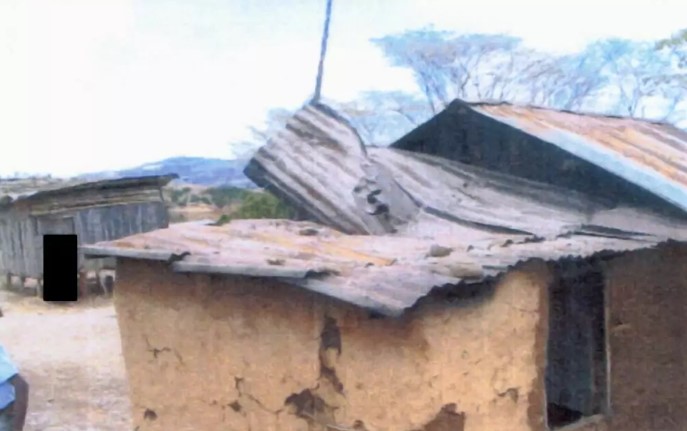 The blast blew off Robert’s roof. (Photo: MoD disclosure to DCUK)
The blast blew off Robert’s roof. (Photo: MoD disclosure to DCUK)
Contributing factors
When Robert’s case was belatedly raised in parliament following Declassified’s interview with Irene, Defence Minister James Heappey gave a sanitised account of the incident.
There were, he said, “a number of contributing factors, including Mr Seurei not understanding the safety briefings and the dangers of removing items from the range (due to language barriers)”.
The full farce of a Nepalese Gurkha briefing Robert in a language they both struggled to understand was thus obscured.
Heappey went on to admit there was “inadequate supervision; premature removal of safety posts marking the hazardous area (before a thorough daylight check had taken place); and incorrect fitting of a safety fuse”.
Again, the minister concealed the army’s true scale of incompetence, this time by implying only a single safety fuze had been misfitted, and not 17.
He concluded by briefly mentioning how investigators recommended “clarifying the minimum rank for a Battle Noise Simulation Safety Supervisor” – referring to the corporal, or BSS.
Heappey made this sound like the most minor aspect of the investigation. Yet the army’s own documents acknowledge it was a central issue. The corporal was simply too junior for the job and “should not have been permitted to conduct Battle Noise Simulation”.
They said: “The pressure manifested itself in two lapses; reduced time available for preparation resulting in the incorrect setting up of the ISFE, thereby increasing the number of misfires, and an insufficient search” of the exercise areas.
After Robert’s death, the battle school in Brecon accepted that “In line with new regulations the BSS will be a senior NCO for all future overseas Battle Camps.”
The documents also reveal another acknowledgement of how Robert was placed in too much danger.
The army decided that going forward, local Kenyans “will not be used to clear” areas where plastic explosives had been planted.
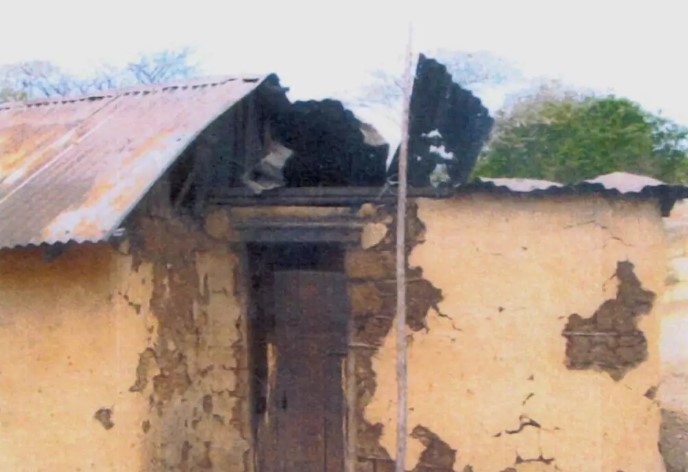 Another view of the damage from the explosion. (Photo: MoD disclosure to DCUK)
Another view of the damage from the explosion. (Photo: MoD disclosure to DCUK)
‘Great regret’
In public, the British army admits it made mistakes but acts as if the case is closed.
When asked to comment on this article, a spokesperson said: “Mr Seurei’s death is a source of great regret and our thoughts remain with his family and friends. The Ministry of Defence admitted liability in March 2008 and the claim was settled in November 2010.”
An undisclosed sum of compensation was agreed with Robert’s father, three years after the tragedy. Yet Irene was not a party to that settlement, nor were the investigation reports ever shown to her.
She only recently came to learn of their existence due to Declassified. Initially, the MoD said it held 92 pages of material about Robert’s death, but that it would be too “burdensome” on the department to consider it for disclosure.
Eventually, following complaints from Declassified and with the Information Commissioner’s Office investigating, the MoD agreed to disclose 42 pages – less than half of what it held.
Parts of these pages were censored: not just the corporal’s name but also six photos of Irene’s house, which the MoD worried would cause her “distress”. It took another complaint with her consent to finally get those disclosed.
The photos, which we are publishing today for the first time, show the army was well aware of the damage done by the blast to Irene’s property, but she was never compensated for it.
Indeed, their documents wrongly refer to her throughout as Robert’s mother, and not his aunt – indicating the army might have thought she was covered by their settlement with Robert’s dad, who lived elsewhere.
Not only did Irene’s house catch fire, but her mother Cheptoo lost her hearing and suffered chest injuries from the blast. “She was really disturbed and never normal again until her demise,” Irene told Declassified.
Irene had to care for Cheptoo constantly until she passed away in 2021. None of this damage or distress was accounted for by the MoD’s settlement with Robert’s father.
Upon learning more about the investigations into Robert’s death, Irene told Declassified: “I hope this newly found evidence and photographs open up my case and remind the army they didn’t act justly by me.”
The evidence should also interest MPs in the Kenyan parliament’s defence and foreign affairs committee.
They are conducting their own inquiry into negligence and abuse by the British army, which is blamed for causing hundreds of deaths and injuries after independence.
Public hearings will be held at the end of this month near Ole Naishu for witnesses to come forward. Irene may well be among them.
The story was first published by Declassified UK
Reader comments
Follow Us and Stay Connected!
We'd love for you to join our community and stay updated with our latest stories and updates. Follow us on our social media channels and be part of the conversation!
Let's stay connected and keep the dialogue going!

